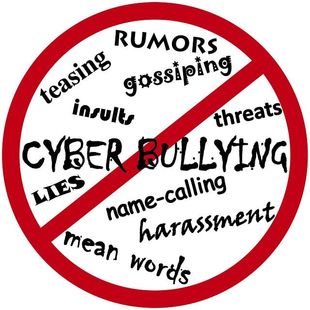|
School can be the number one stressor for children, specifically adolescents and early teens (grades 5-8 and over). This age group is exceedingly vulnerable to peer pressures, clique formations, experiences of physical awkwardness and social exclusion. This stress is compounded by the existence of social media and online bullying. This is so REAL for teens today that children who are still concrete in their thinking and who depend on the external opinions of others are attempting suicide due to overwhelming responses to vulnerable social media posts about feelings of stress, anxiety & depression. Our children can be targeted within their own social media circles when they post about such topics. Mainly because these circles can expand to people they don’t even know by virtue of the open connections they have access to: friends of friends, etc. In addition they might still be too concrete in their developmental stages of thinking to understand the personal repercussions of their online actions. Through my counseling experience, one type of situation I have witnessed is bullying by association: for example a boy wants to bully his peer and slanders his peer’s sister, by making a comment about her which is sexual in nature. This young girl is not yet old enough to have experienced this sort of activity. However she is old enough to have an online profile. Comments made in jest in order to hurt someone can be toxic to an entire community. For example imagine chains of rumors and devastating remarks about this young girl start appearing in her social media threads because someone who was connected to both parties saw the derogatory post and boosted it. This undermining of her personal reputation devastates her. In such a situation if parents get involved quickly and intervene, they can counsel her through this crisis before it escalates further. This type of activity is common, it can be shaming and unfamiliar territory for the uninitiated. Online bullying has also become such an epidemic that groups of peers will target a vulnerable teen and tell them to “kill yourself” as a solution to their problem. This could be considered funny (if you are a teenager) or sarcastic, or sardonic, depending on how one translates it. But if you are a vulnerable teen you may also actually be suffering from depression and by virtue of having a stressed nervous system have lost the ability to decipher what is real and what is a satire on current adolescent life. The dangers of “groupthink” are the underlying reasons for gang rape and other atrocious crimes committed by adolescents and adults alike. Groupthink has permeated our children’s online profiles. Our children are not sophisticated enough, nor are they equipped to deal with this kind of invasive, permeating stress. It truly is a more potent type of peer pressure they are dealing with today. What can we do to help prevent this?
Safety is also a Primary Concern:
It is True – what they don’t know can hurt them especially in an online format: Good schools offer programs to target online bullying, but this doesn’t stop it. The village mentality is the only way to wrap our children in a cloak of safety. I think it is fair to say too that an ounce of prevention is worth its weight in gold if one child seeks help before attempting suicide after an immature and temporarily insensitive teen or group of teens lash out in this way. When bad things happen to our children, everyone involved is a victim. This is a new problem our generation of parents has been forced to deal with. It is one that needs to be always monitored as it moves faster, changes shape and develops more quickly than we can technologically grasp. Many children these days know more about the computer and online world then their parents. All the more reasons to create a setting where families can talk about what goes on at school, in other social environments including sports, social media and online gaming. Keep our children safe in 2017/18 – take some time to connect with teachers, school administrators, and community leaders and learn what others are doing to help children deal with the stress of school compounded by social media. Don’t be afraid to connect your children to a therapist, school counselors and other community mentors available to them for added support. Take some time over your extended holidays to talk about social media and create a safe space for your family to talk about bullying and or online bullying. You may be surprised what your children deal with daily. Don't judge, try to listen first. Then collaborate on some safety guidelines. See Definition: Groupthink From Wikipedia, the free encyclopedia Groupthink is a psychological phenomenon that occurs within a group of people, in which the desire for harmony or conformity in the group results in an irrational or dysfunctional decision-making outcome. Group members try to minimize conflict and reach a consensus decision without critical evaluation of alternative viewpoints, by actively suppressing dissenting viewpoints, and by isolating themselves from outside influences. https://en.wikipedia.org/wiki/Groupthink [THIS BLOG FIRST POSTED January 8th, 2016 at http://marketstreetpsychotherapy.com/blog/social-media-and-online-bullying/ and has been edited to reflect current changes bullying trends.]
0 Comments
Your comment will be posted after it is approved.
Leave a Reply. |
AuthorBONNIE CARDELL, LMFT Archives
December 2017
Categories |


 RSS Feed
RSS Feed
